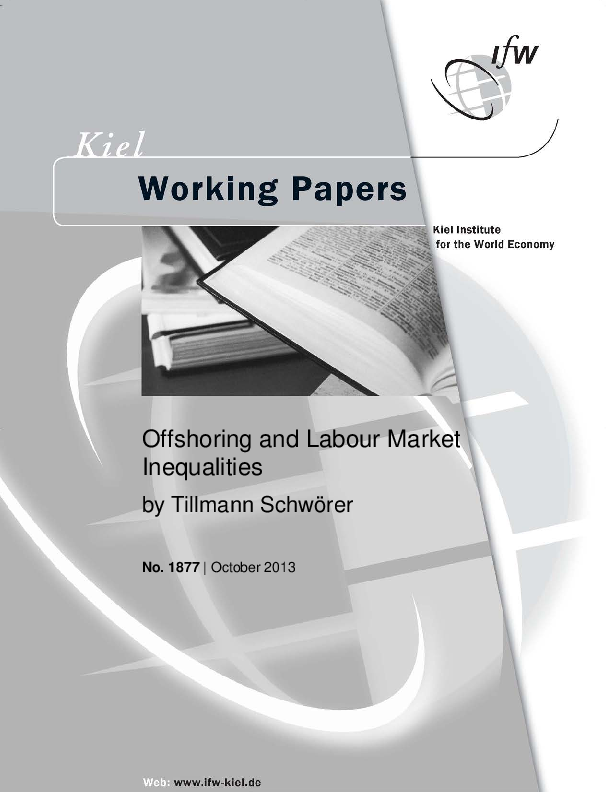Authors
Publication Date
JEL Classification
Key Words
Related Topics
Labor Market
International Trade
This paper estimates the effects of offshoring on labour market inequalities between skill groups based on German industry level data from 1995 to 2007. Our main findings are the following: First, offshoring is on average biased in favour of high-skilled employees and in disfavour of low-skilled employees. This effect is strongly driven by the manufacturing sector, material offshoring, and offshoring to Central and Eastern Europe. Second, we find that the labour market adjusts to offshoring mainly through changes in relative wages rather than changes in relative employment. This runs counter to the classical argument that German labour market institutions (collective bargaining, unemployment benefits, etc.) lead to rigid wage structures and high unemployment rates. Third, in the service sector it is the group of medium-skilled employees which is particularly exposed to offshoring, possibly due to the different nature of tasks there. Fourth, medium-skilled employees are also negatively affected by technological change, which explains recent trends towards a polarisation in labour demand.





